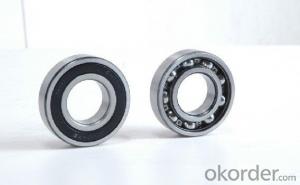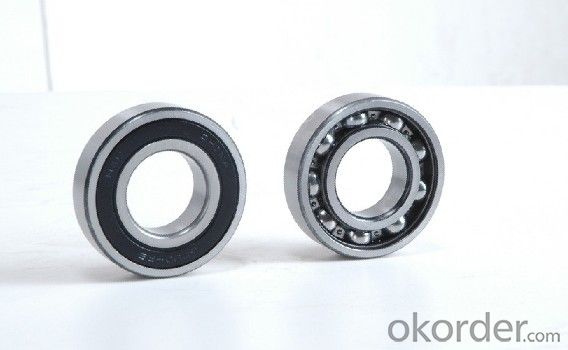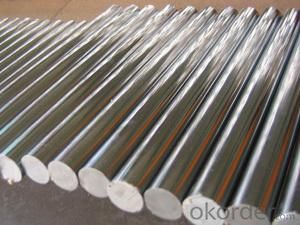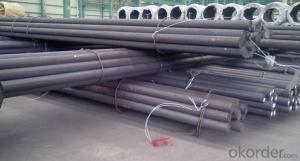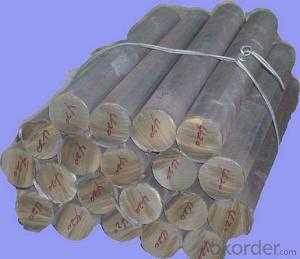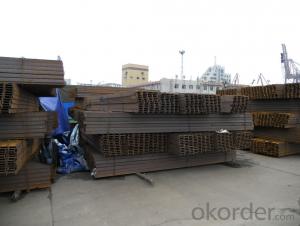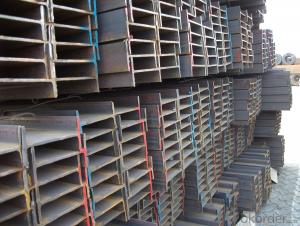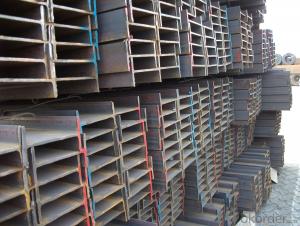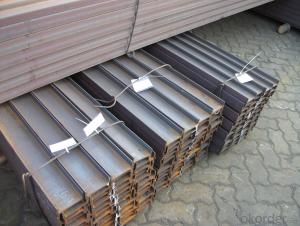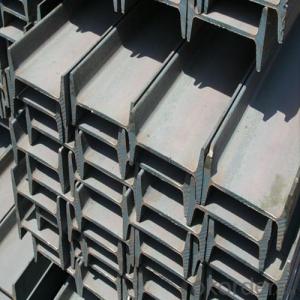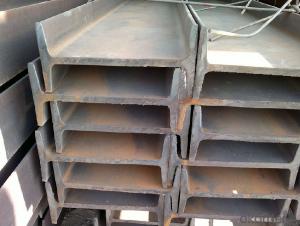Stainless IPEAA 200 IPE for construction
- Loading Port:
- Tianjin
- Payment Terms:
- TT or LC
- Min Order Qty:
- 10000 m.t.
- Supply Capability:
- 10000 m.t./month
OKorder Service Pledge
OKorder Financial Service
You Might Also Like
Product Description:
OKorder is offering Stainless IPEAA 200 IPE for construction at great prices with worldwide shipping. Our supplier is a world-class manufacturer of steel, with our products utilized the world over. OKorder annually supplies products to European, North American and Asian markets. We provide quotations within 24 hours of receiving an inquiry and guarantee competitive prices.
Product Applications:
Stainless IPEAA 200 IPE for construction are ideal for structural applications and are widely used in the construction of buildings and bridges, and the manufacturing, petrochemical, and transportation industries.
Product Advantages:
OKorder's Stainless IPEAA 200 IPE for construction are durable, strong, and resist corrosion.
Main Product Features:
· Premium quality
· Prompt delivery & seaworthy packing (30 days after receiving deposit)
· Corrosion resistance
· Can be recycled and reused
· Mill test certification
· Professional Service
· Competitive pricing
Product Specifications:
Grade | AISI 52100, ASTM E52100, DIN 1.3505,JIS SUJ2, GCr15 |
Dimensions | Diameter: 30-60mm Length: 2000-13000mm or as required |
Shape | Round Bar |
Type | Alloy Steel Bar |
Delivery Condition | Black Surface |
Material | Bearing Steel |
Technique | Hot Rolled |
Usage and Applications of Bearing Steel Round Bar
Bearing steels are used for ball and roller bearing applications and are comprised of low carbon steels and high carbon through harden able steel.
First the famous 1C-1.5Cr steel from which the majority of bearings are made. Its structure is apparently well-understood and the focus is on purity in order to avoid inclusions which initiate fatigue during rolling contact. Then there is the M50 steel and its variants, from which bearings which serve at slightly higher temperatures in aeroengines are manufactured, based on secondary-hardened martensite.
Tapered roller bearing are generally used to support combined load mainly consisting of radial load. Their cups are separable for easy assembling ,During mounting and using, radial clearance and axial clearance can be adjusted and preloaded mounting can be made.
Packaging & Delivery of Bearing Steel Round Bar
Packaging Detail: ASTM 52100 Steel in seaworthy packing or on customer request; Packed in bundles with standard export sea-worthy package or as customer require
Delivery Detail: 45 days after confirmed
Trade terms: FOB, CFR, CIF ou as customer's required
MOQ: 25 tons or at customer's demands. If the quantity is good, the price will be better.
Processing of Bearing Steel Round Bar
The processing of Bearing Steel Round Bar is hot rolled (strictly control sulphur, phosphorus and non-metallic inclusions content and distribution)
Chemical Composition of Bearing Steel Round Bar
C | Si | Mn | Cr | Ni | Cu |
Equal or less than | |||||
0.95-1.05 | 0.15-0.35 | 0.25-0.45 | Cr:1.40-1.65 | 0.30 | 0.25 |
All products' chemical composition and specification can be design according to customers' requirement.
Note of Bearing Steel Round Bar
1. According to national standard (GB) for our products, if not, supply according to national standards (GB) or agreement.
2. We can not only provide electric furnace +LF+VD and electros lag re-melting (ESR) steel forging materials, but also forging products of piece, bar, etc.
3. Our company is equipped with roll equipment and can provide our customers with roll billets or finished.
4. Please send us your detailed specifications when inquire. We will reply to you ASAP.
5. Certificate of quality is issued in English, in addition the normal terms, production process, the mechanical property (yield strength, tensile strength, elongation and hardness. forged ratio, UT test result, Grain size, heat treatment methods and the sample of is shown on the certificate
FAQ:
Q1: How soon can we receive the product after purchase?
A1: Within three days of placing an order, we will begin production. The specific shipping date is dependent upon international and government factors, but is typically 7 to 10 workdays.
Q2: Can stainless steel rust?
A2: Stainless does not "rust" as you think of regular steel rusting with a red oxide on the surface that flakes off. If you see red rust it is probably due to some iron particles that have contaminated the surface of the stainless steel and it is these iron particles that are rusting. Look at the source of the rusting and see if you can remove it from the surface.
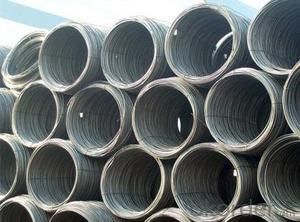
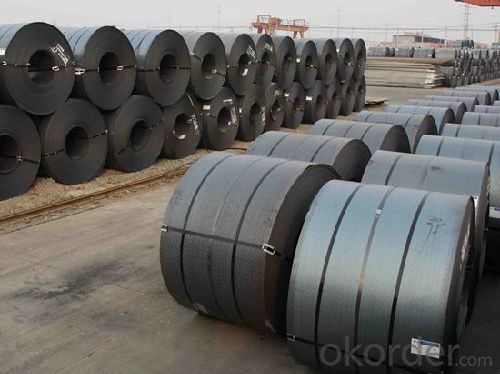
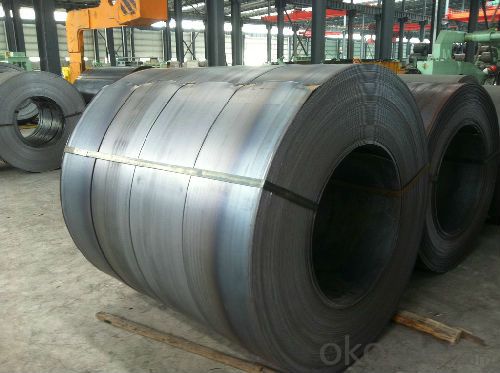
- Q: How does special steel perform under high-temperature oxidation?
- Special steel is engineered to exhibit outstanding performance when exposed to high temperatures, particularly in terms of oxidation. It is fabricated utilizing alloys that possess a significant quantity of chromium, which generates a shielding chromium oxide layer on the steel's surface once confronted with elevated temperatures. This chromium oxide layer acts as a barrier, thwarting further oxidation and safeguarding the steel against corrosion. The generous amount of chromium present in special steel also heightens its resistance to scaling, which refers to the development of thick layers of oxide on the steel's surface. Scaling can compromise the steel's integrity and result in failure when subjected to high temperatures. Nonetheless, special steel retains its structural soundness even at elevated temperatures due to its capacity to resist scaling. Apart from chromium, special steel may contain additional alloying elements like nickel, molybdenum, and vanadium. These elements contribute to the steel's resistance to high-temperature oxidation by further augmenting the formation and stability of the protective oxide layer. Overall, special steel exhibits exceptional performance under high-temperature oxidation circumstances. Its distinctive composition and alloying elements enable it to establish a protective oxide layer, resist scaling, and retain its strength and integrity even at elevated temperatures. As a result, it is extensively utilized in various industries that involve high-temperature applications, including power generation, aerospace, and petrochemical industries.
- Q: What are the different processes involved in making special steel?
- The different processes involved in making special steel include melting the raw materials in a furnace, refining the molten steel to remove impurities, adding alloying elements to achieve desired properties, casting or forming the steel into desired shapes, heat treating to enhance its strength and hardness, and finally finishing processes like machining or polishing to achieve the desired surface finish.
- Q: How does spring steel maintain its elasticity?
- Spring steel maintains its elasticity due to its unique composition and manufacturing process. It is made from a high carbon steel alloy that undergoes heat treatment and quenching, which gives it its exceptional strength and flexibility. This heat treatment process called tempering allows the steel to retain its shape and bounce back to its original form after being deformed or subjected to external forces. The carbon content in spring steel also contributes to its elasticity by providing increased hardness and resistance to deformation. Overall, the combination of high carbon content, heat treatment, and quenching make spring steel highly durable and able to maintain its elasticity over extended periods of use.
- Q: How does nitriding improve the wear resistance of special steel?
- Nitriding is a surface hardening process that significantly improves the wear resistance of special steel. The process involves the diffusion of nitrogen atoms into the steel's surface, forming a hardened layer called nitride. This nitride layer is exceptionally hard and has a high resistance to wear, making the steel more durable and able to withstand abrasive forces and friction. The improved wear resistance of nitrided special steel is primarily due to the formation of a compound called iron nitride (Fe3N) within the nitride layer. Iron nitride has a high hardness level, typically ranging from 800 to 1000 HV (Vickers hardness). This hardness is significantly higher than the hardness of the steel's base material, contributing to the enhanced wear resistance. Additionally, the nitride layer formed during the nitriding process also increases the surface hardness of the steel. This increased hardness makes the steel more resistant to deformation and indentation, which are common causes of wear in materials subjected to friction and abrasion. Furthermore, the nitride layer acts as a barrier, protecting the underlying steel from chemical reactions, oxidation, and corrosion. This barrier prevents the steel from degrading due to exposure to harsh environments, moisture, and chemicals, thus further enhancing its wear resistance. Overall, nitriding improves the wear resistance of special steel by creating a hardened nitride layer that is exceptionally hard, resistant to wear, and acts as a protective barrier. This process significantly extends the lifespan and durability of the steel, making it ideal for applications that require high wear resistance, such as cutting tools, gears, and automotive components.
- Q: What are the different machining techniques for special steel?
- There are several machining techniques specifically used for special steel, such as turning, milling, drilling, and grinding. Each technique involves different tools and processes to shape and cut the steel, depending on the required specifications and desired outcome. Additionally, other specialized techniques like electrical discharge machining (EDM) and laser cutting can also be utilized for special steel machining.
- Q: What are the different coating options available for special steel?
- Some of the different coating options available for special steel include galvanizing, powder coating, electroplating, and organic coatings such as epoxy or polyurethane. These coatings provide protection against corrosion, enhance durability, and improve the aesthetics of the steel.
- Q: What are the cutting tools used for machining special steel?
- The cutting tools used for machining special steel include carbide inserts, high-speed steel (HSS) tools, ceramic tools, and diamond-coated tools. These tools are designed to withstand the high temperatures and hardness of special steels, ensuring efficient and precise cutting operations.
- Q: How does special steel contribute to the aerospace racing aftermarket industry?
- Special steel plays a significant role in enhancing the performance, durability, and safety of aircraft and racing vehicles within the aerospace racing aftermarket industry. Its importance cannot be overstated. To start with, critical engine components like turbine blades, compressor discs, and shafts are manufactured using special steel. These components must withstand extreme temperatures, pressures, and mechanical stress during operation. Nickel-based superalloys, which are a type of special steel alloy, provide excellent heat resistance, high strength, and exceptional corrosion resistance. This ensures that the engine systems perform at their best and are reliable. Additionally, special steel is essential in constructing airframe structures. Titanium alloys, which are lightweight yet possess high-strength properties, are crucial in reducing the overall weight of aircraft and racing vehicles. This reduction in weight leads to improved fuel efficiency, increased speed, and better handling capabilities. Therefore, special steel is an indispensable material in the aerospace racing aftermarket. Furthermore, special steel is utilized in the production of landing gear systems, which are vital for safe takeoffs, landings, and overall maneuverability. The landing gear must endure immense forces and shock loads during these operations. Special steel alloys such as chromium-molybdenum steel offer exceptional toughness, fatigue resistance, and impact strength. This ensures the landing gear's reliability and longevity. Moreover, special steel plays a crucial role in manufacturing aerospace racing aftermarket components like fasteners, bearings, and gears. These components require high strength, wear resistance, and dimensional stability to withstand the demanding conditions of racing and provide optimal performance. Special steel alloys like stainless steel and tool steel possess these desirable properties, ensuring the longevity and reliability of these crucial components. To sum up, special steel's exceptional properties, including high strength, heat resistance, corrosion resistance, and fatigue resistance, enable the production of reliable, efficient, and high-performance aircraft and racing vehicles within the aerospace racing aftermarket industry. Without special steel, the industry would be unable to achieve the level of advanced technology, speed, and safety that it currently enjoys.
- Q: What is special steel? What is special steel?
- There is no uniform definition and concept for special steel at present.It is generally believed that special steel is a kind of steel with special alloy composition, special process smelting and production, special organization and performance, and special requirement.Compared with ordinary steel, special steel has higher strength and toughness, physical properties, chemical properties, biocompatibility and process performance.
- Q: What are the main applications of special steel in the textile industry?
- Special steel is used in the textile industry primarily for manufacturing textile machinery components. It is utilized to produce high-quality parts and tools like knitting needles, loom parts, and various cutting and shaping equipment. The strength, durability, and resistance to wear and tear of special steel make it an ideal material for these applications, ensuring the efficient and reliable operation of textile machinery in the industry.
Send your message to us
Stainless IPEAA 200 IPE for construction
- Loading Port:
- Tianjin
- Payment Terms:
- TT or LC
- Min Order Qty:
- 10000 m.t.
- Supply Capability:
- 10000 m.t./month
OKorder Service Pledge
OKorder Financial Service
Similar products
Hot products
Hot Searches
Related keywords
